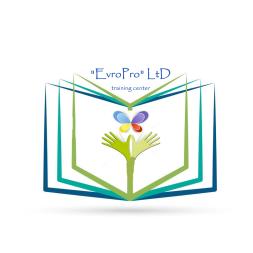
Developing intercultural competence and learning about best practice examples to fight against prejudice and discrimination, in adult education.
Developing intercultural competence and combating prejudice and discrimination in adult education
In today's interconnected world, full of dynamic changes and diversity, intercultural competence is not just an advantage, but a necessity. Prejudice and discrimination continue to be serious challenges that hinder personal development, social inclusion and effective communication.
Description
This 7/9-day intensive course is designed to equip you with key knowledge, skills and practical tools for effective work in an intercultural environment and actively combating prejudice.What will you learn and experience?
You will understand the roots of prejudice: We will explore the psychological mechanisms behind their formation – from social learning and cognitive biases to the role of group affiliation.
You will develop intercultural sensitivity: Through Bennett’s model, we will trace the path from ethnocentrism to ethnorelativism, improving our ability to perceive and appreciate cultural differences.
You will improve empathy and communication: You will practice active listening techniques and effective intercultural communication to overcome misunderstandings and build bridges.
You will learn about good practices: We will analyze successful European and international initiatives and programs that actively fight against discrimination, including innovative methods for adult education.
You will create your own solutions: You will work on developing intercultural learning activities and projects applicable in your field, with a focus on their practical impact.
Learning objectives
The main objective of this course is to enhance the intercultural competence of participants and to empower them with tools and strategies to effectively combat prejudice and discrimination in the context of adult learning.
Upon successful completion of the course, participants will be able to:
Define and differentiate between key concepts such as culture, intercultural competence, diversity, prejudice, stereotypes and discrimination, as well as understand their interrelationships.
Identify and analyze the psychological mechanisms that contribute to the formation and maintenance of prejudice, including social learning, cognitive biases and group affiliation.
Assess their own level of intercultural sensitivity and identify next steps for personal development using the Bennett Model (DMIS).
Develop and apply empathetic listening and intercultural communication techniques to overcome misunderstandings and build constructive relationships in diverse groups.
Methodology & assessment
Here are the main elements of the approach we will use:
1. Experiential Learning
2. Interactive and facilitated sessions
3. Case studies and good practices
4. Reflection and personal development
5. Development of applicable projects
6. Supportive and safe environment
Materials, digital tools & other learning resources
Digital resources:
Video clips:
Short documentaries or excerpts related to cultural diversity, prejudice and discrimination.
Examples of successful campaigns or initiatives.
TED Talks on the topic (e.g. on unconscious bias, empathy).
Videos illustrating cultural differences in communication.
Online articles and publications: From reliable sources (universities, NGOs, international organisations).
Interactive tools/platforms:
Online testing platforms (if IAT is used for awareness, not diagnosis).
Online b
Certification details
Graduates receive a certificate with indicated hours, and if desired, we issue a Europass mobility pass.
Pricing, packages and other information
-
Price:720Euro
-
Course package content:
The price is standard - 80 euros per day per person. The course is confirmed with a minimum of 3 participants. The given amount is for a 9-day course.Includes training, delegate packages, certificates, coffee breaks. Also includes a cultural program with one entrance for cultural savings. We provide support for transfers and accommodation if desired.
-
Additional information:Description of the services and activities included in the course package (such as accommodation, meals, transport) or available at extra cost.
-
Cancellation & changes:
Up to two months before the course, all funds are refunded. Up to one month before the course, 80% is refunded, and at a later stage - 50%.
-
Additional information:The options and conditions for change and cancellation, and the policy in case of unforeseen circumstances (force majeure).
Additional information
-
Language:English
-
Target audience ISCED:Lower secondary education (ISCED 2)Upper secondary education (ISCED 3)Other
-
Target audience type:TeacherTeacher EducatorNot-for-profit / NGO staff
-
Learning time:25 hours or more

